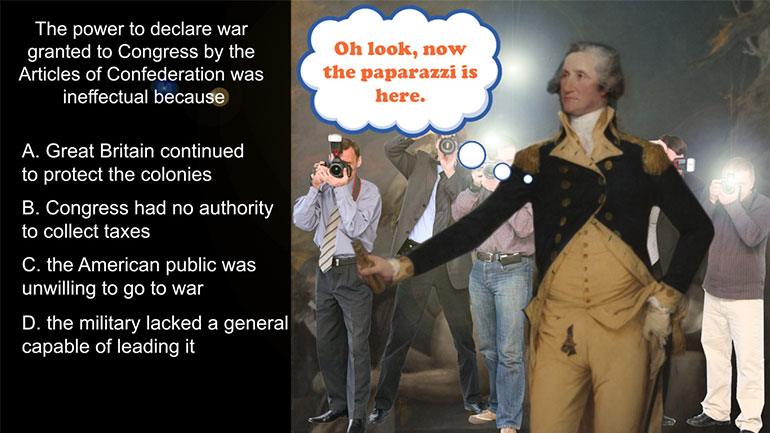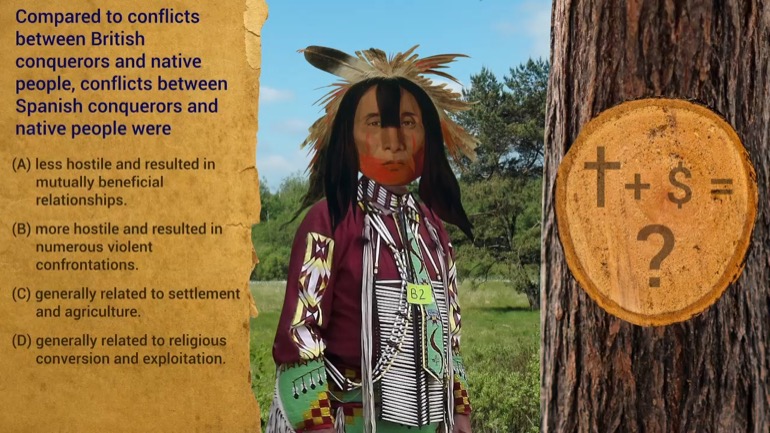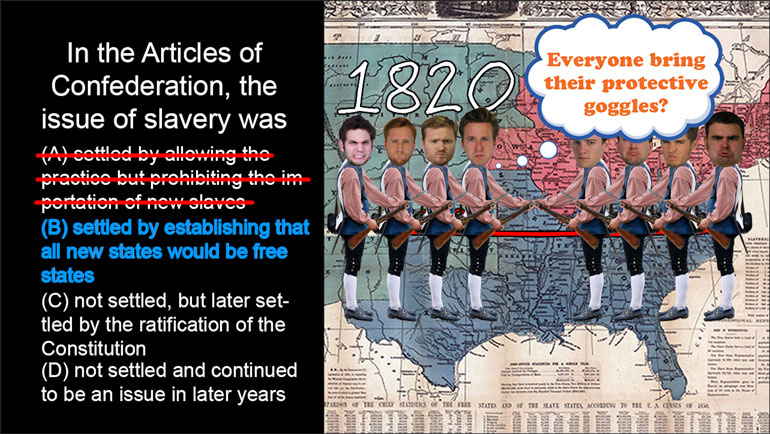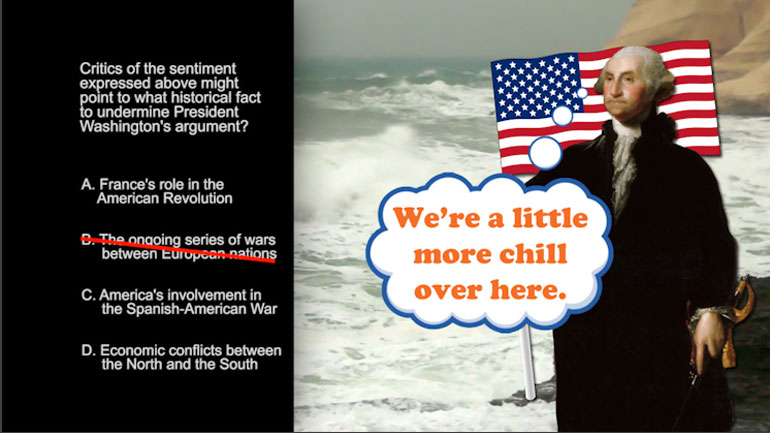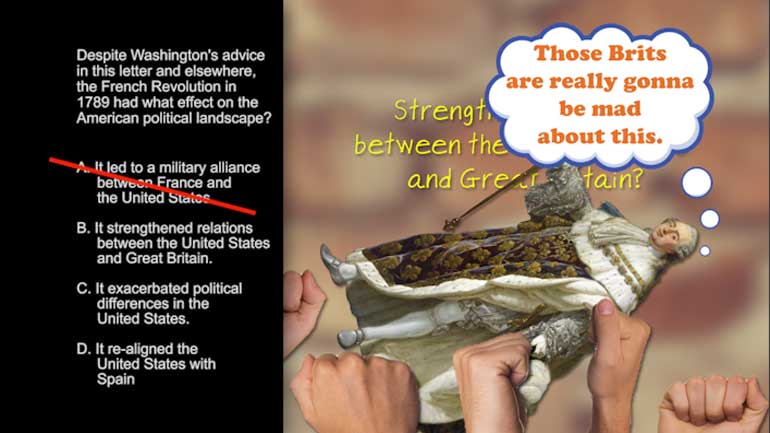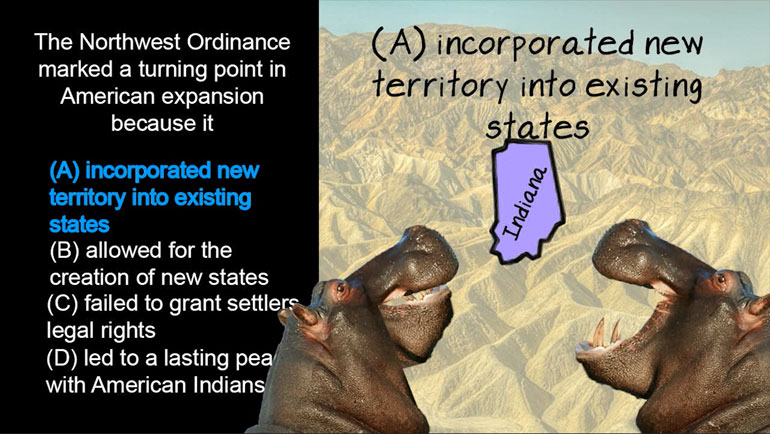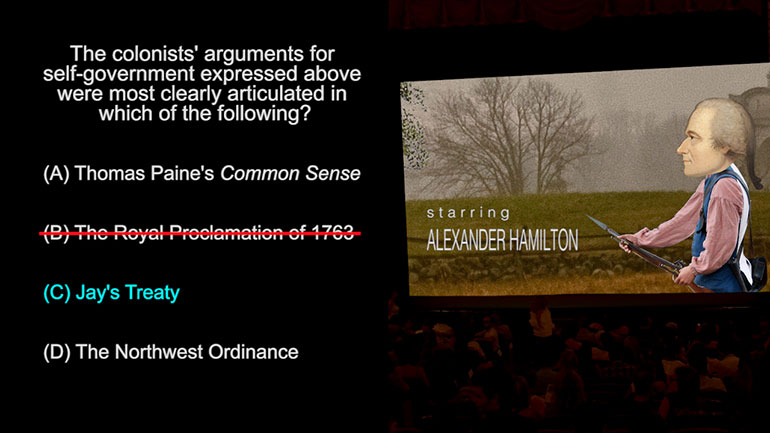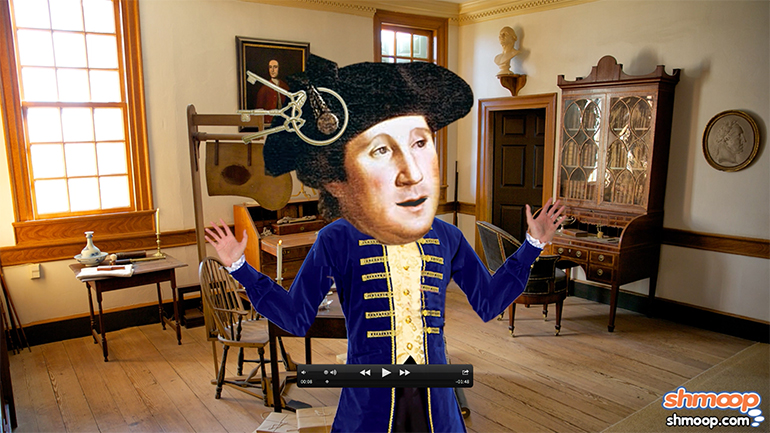ShmoopTube
Where Monty Python meets your 10th grade teacher.
Search Thousands of Shmoop Videos
U.S. History: 1754 – 1800
Play All
AP U.S. History 1.1 Period 3: 1754–1800. Why was the power to declare war granted to Congress by the Articles of Confederation ineffectual?
AP U.S. History 1.2 Period 3: 1754-1800. The structure of the government that the Articles of Confederation established most clearly reflects the R...
AP U.S. History 1.3 Period 3: 1754-1800. In the Articles of Confederation, the issue of slavery was...what?
AP U.S. History 1.4 Period 3: 1754-1800. In the Articles of Confederation, the issue of slavery was what?
It was the best of questions, it was the worst of questions.... Well, you can decide how you feel about it. Check out this question about the Frenc...
How did the Northwest Ordinance mark a turning point in American expansion? And no, it has nothing to do with Kimye's baby, even if she did add to...
AP U.S. History 2.2 Period 3: 1754-1789. Abolitionists would most likely have criticized the Northwest Ordinance over which of the following p...
AP U.S. History 2.3 Period 3: 1754-1800. Settler expansion encouraged by the Northwest Ordinance had what effect on Indian-colonist relations?
AP U.S. History 2.4 Period 3: 1789-1800. Colonists argued that the actions depicted in the cartoon were unjust for which of the following reasons?
AP U.S. History 2.5 Period 3: 1754–1800. The colonists' arguments for self-government expressed above were most clearly articulated in which of t...
AP U.S. History 3.1 Period 3: 1754-1800. Which of the following best describes the goals of the Stamp Act?
AP U.S. History 3.2 Period 3: 1754-1800. The enactment of the goals expressed in the excerpt directly led to...what?
AP U.S. History 3.3 Period 3: 1754-1800. The argument in the excerpt directly reflects a continuation of which of the following Enlightenment belie...
AP U.S. History 3.4 Period 3: 1754-1800. Common Sense had the most in common with which of the following?
AP U.S. History 3.5 Period 3: 1754-1800. One effect of the sentiments expressed in the excerpt was...what?
AP U.S. History 4.1 Period 3: 1754-1800. The argument in the excerpt is most clearly an example of which of the following late 18th-century trends?
AP U.S. History 4.2 Period 3: 1754-1800. Which of the following developments best serves as evidence for the continuation of the excerpt's argument?
AP U.S. History 4.3 Period 3: 1754-1800. Which of the following factors contributed most directly to the trend described in the excerpt?
